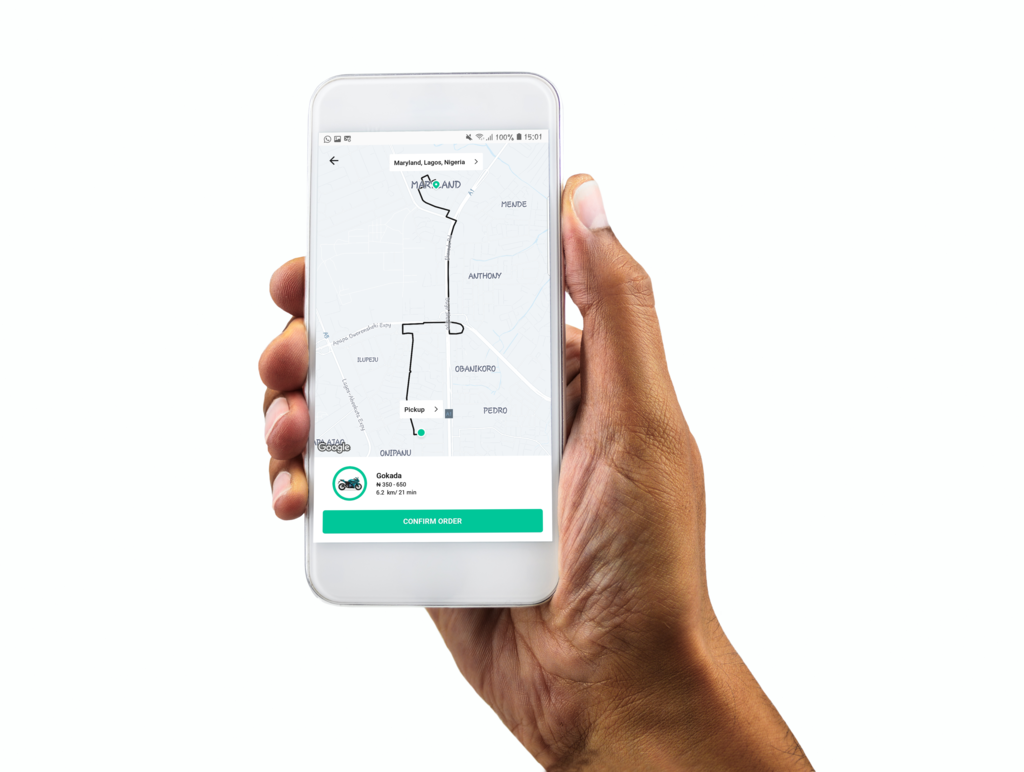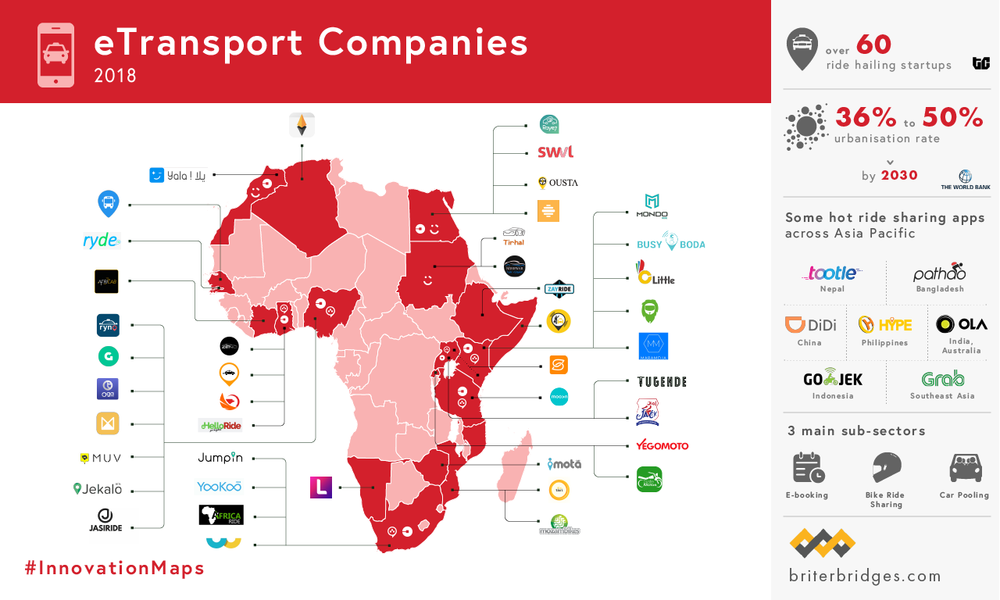Nigeria’s Gokada raises $5.3M round for its motorcycle ride-hail biz
In many large cities across Africa, motorcycle taxis are as common as yellow cabs in New York.
That includes Lagos, Nigeria, where ride-hail startup Gokada has raised a $5.3 million Series A round to grow its two-wheel transit business.
Gokada has trained and on-boarded more than 1,000 motorcycles and their pilots on its app that connects commuters to moto-taxis and the company’s signature green, DOT– approved helmets.
The startup has completed nearly 1 million rides since it was co-founded in 2018 by Fahim Saleh — a Bangladeshi entrepreneur who previously founded and exited Pathao, a motorcycle, bicycle and car transportation company.
For Gokada’s Series A, Rise Capital led the investment, joined by Adventure Capital, IC Global Partners and Illinois-based First MidWest Group. Coinciding with the round, Nigerian investor and Jobberman founder Ayodeji Adewunmi will join Gokada as co-CEO.
Gokada will use the financing to increase its fleet and ride volume, while developing a network to offer goods and services to its drivers. “We’re going to start a Gokada club in each of the cities with a restaurant where drivers can relax, and we’ll experiment with a Gokada Shop, where drivers can get things they need on a regular basis, such as plantains, yams and rice,” Saleh told TechCrunch.
The startup differs from other ride-hail ventures in that it doesn’t split fare revenue with drivers. Gokada charges drivers a flat-fee of 3,000 Nigerian Naira a day (around $8) to work on their platform. The company is looking to generate a larger share of its revenue from building a commercial network around its rider community.
“We don’t do anything with the fares. We want to create an Amazon Prime-type membership…and ecosystem around the driver where we’re going to provide them more and more services, such as motorcycle insurance, maintenance, personal life-insurance and micro-finance loans,” Saleh said.
 “We’re trying to provide a network of great services for our drivers that makes them stick with us, and not necessarily see a reason to switch to other platforms,” said Saleh.
“We’re trying to provide a network of great services for our drivers that makes them stick with us, and not necessarily see a reason to switch to other platforms,” said Saleh.
Competition among those platforms is heating up, as global players enter Africa’s motorcycle taxi market and local startups raise VC and expand to new countries.
Uber began offering a two-wheel transit option in East Africa in 2018, around the same time Bolt (previously Taxify) started motorcycle taxi service in Kenya.
Rwanda has motorbike taxi startups SafeMotos and Yegomoto. Uganda-based motorcycle ride-hail company SafeBoda expanded into Kenya in 2018 and this month raised a Series B round of an undisclosed amount, co-led by the venture arms of Germany’s Allianz and Indonesia’s Go-Jek.
SafeBoda will use the round to further expand in East Africa and Nigeria in the near future, the startup’s co-CEO Maxime Dieudonne confirmed to TechCrunch.
In Nigeria, Gokada faces a competitor in local startup MAX.ng, which offers mobile-based passenger and logistics delivery services.
Overall, Africa’s motorcycle taxi market is becoming a significant sub-sector in the continent’s e-transport startup landscape. Two-wheel transit startups are vying to digitize a share of Africa’s boda boda and okada markets (the name for motorcycle taxis in East and West Africa) — representing a collective revenue pool of $4 billion and expected to double to $9 billion by 2021, according to a TechSci study.
“There is a formalization of an informal sector play here…to make it safer and higher quality,” Gokada investor Nazar Yasin of Rise Capital told TechCrunch.
The appeal to passengers is the lower cost of motorbike transit compared to buses or cabs ($1.85 is Gokada’s average fare) and the ability of two-wheelers to cut through the heavy congestion in cities such as Lagos and Nairobi.

A notable facet of motorcycle ride-hail companies in Africa is better organizing a space with a reputation for being somewhat chaotic and downright dangerous (see Nigeria’s past bans on the sector entirely due to safety).
For Gokada that includes training courses and certification of riders, the ability to track trips and safety stats from the app, and quality control for motorcycles — something that’s been lacking in East and West Africa’s non-digital moto-taxi space.
The company’s rider program offers a way for drivers to buy, own and maintain their motorcycles as they earn. Gokada has entered into partnership with Indian motorcycle maker TVS Motors to create a custom version of the company’s TVS Apache motorcycles for Gokada drivers.
Gokada is also experimenting with adding sensors to its fleet to better track safety standards. “We’re looking at seat sensors and another GPS sensor to track things like ‘did this driver add more than one passenger on the bike’ and all that data will feed back into our servers,” Saleh said.
The company won’t enter any new countries in Africa in the near future. “We plan to expand all over Nigeria. We think it’s a large enough market for now,” said Saleh. Nigeria is Africa’s most populous nation (190 million) and largest economy.
Powered by WPeMatico